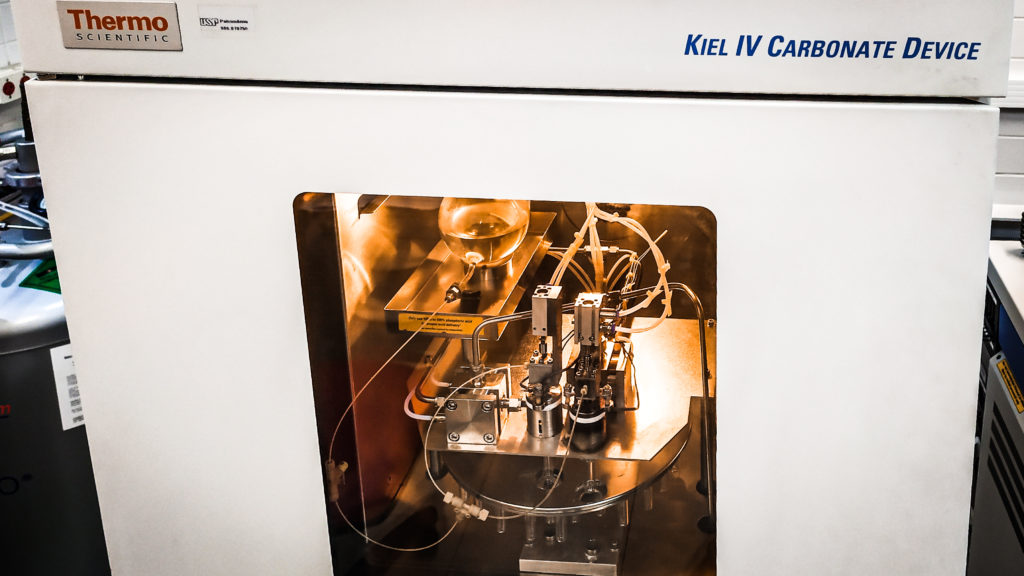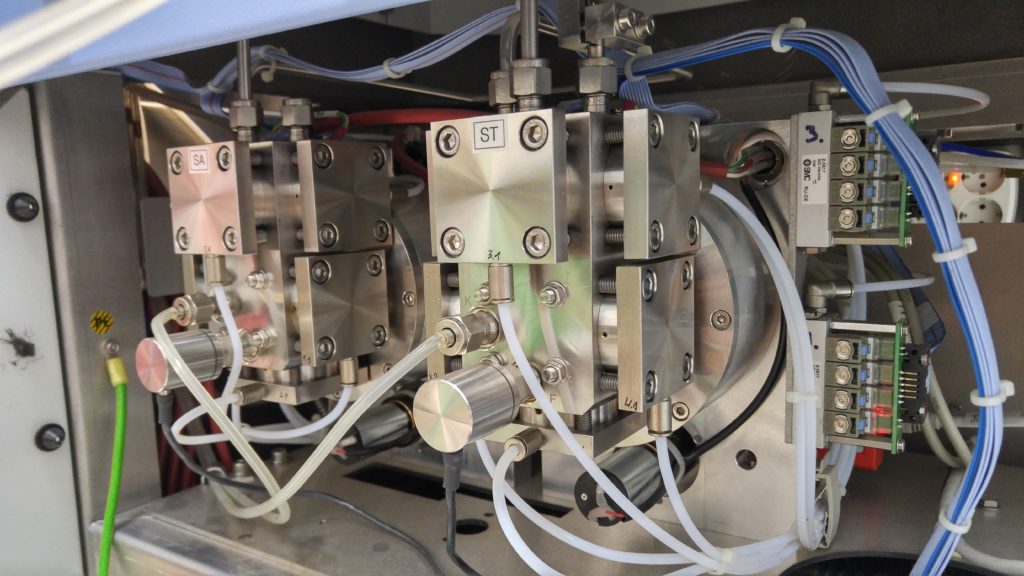
Since 2018 the School of Arts, Sciences and Humanities at University of Sao Paulo has been equipped with 10 kV Thermo Fisher Scientific™ MAT253 gas isotope ratio mass spectrometer (IRMS) coupled with a Thermo Fisher Scientific™ Kiel IV automated carbonate preparation device at Paleoceanography and Paleoclimatology Laboratory facility (P2L). The MAT253-Kiel IV is a state of the art equipment capable of determining the carbon and oxygen isotopic composition of carbonate samples as foraminiferal tests, corals and rhodoliths, otholits, mollusks, stalagmites and bulk sediment.



Analytical principle
Isotope ratios on carbonate samples are measured on the evolved CO2 analyte produced by a chemical reaction with orthophosphoric acid by the Kiel IV carbonate preparation device. A mixture of isotopologues of CO2 which carry the isotopic signal of the carbonate sample enters the MAT253 mass spectrometer. CO2 molecules are accelerated by a 10 kV electric field and deflected by a 0.75 T electromagnet to produce the mass spectra. The Ion beams are then collected by a Faraday multi-collector and transformed into signal intensities. Signal intensities of mass-to-charge ratios 44, 45 and 46 reflect the abundances of 12C16O16O, 13C16O16O and 12C18O16O. δ13C is calculated from the intensity ratios of masses 45/44, and δ18O from 46/44.

The combination of the MAT253 mass spectrometer with the Kiel IV preparation device is ideal for processing very small carbonate samples (i.e., ca. 30 μg, which is the mean mass of a single planktonic foraminifera specimen) with an overall external precision of 0.04 ‰ for δ13C and 0.06 ‰ for δ18O on the international standard NBS19. In routine operation analyses throughput is up to 15000 analyses per year. The MAT253-Kiel IV system is able to run 36 samples per 24h.
Measurements are calibrated against (1) a reference gas of known isotopic composition (ultra-pure >99.999% industrial CO2), and (2) an in-house carbonate standard of known composition. The in-house carbonate standard is composed of Solnhofen limestone (calcite), itself calibrated every quarter against NBS19 (single point anchoring) and yearly against NBS18 and NBS19 (double point anchoring). For every 36 samples, 10 carbonate standards are measured.
For details on our in-house reference material and our methods and protocols please find further information in the article below.
If you wish to submit your sample to us, please find the sample submission guidelines here.
